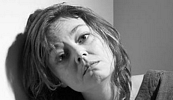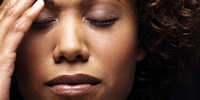Alopecia is the medical terminology used to describe hair loss. It is an especially distressing condition in women, since it is less publicized and socially accepted than male alopecia. There are three major types of female alopecia: androgenetic alopecia, alopecia areata and Telogen Effluvium.
The most common type of female alopecia is androgenetic alopecia, which is when women have thinning or diffuse hair loss at the top of the head while keeping their front bangs. What happens in this specific type of female alopecia is that hair follicles become sensitive to hormones and therefore the follicles produce less hair. The growing cycle of the hair is shortened and, because of this, the production of hair moves slower (and can, at some point, cease in the area).
Causes for androgenetic alopecia are commonly hormonal. While it is not a sole cause, stress can aggravate this type of female alopecia. Androgenetic alopecia by definition means related to hormones and genetics, since there seems to be some pattern of heredity (although this is widely disputed). The most common treatments are the popular Rogaine, Tricomin Therapy Spray and Nizoral. Also, antiandrogens are popular amongst those concretely diagnosed with androgenetic alopecia rather than any other kind of female alopecia. These drugs reverse the actions of the hormones in the body and can help stop hair loss.
When female alopecia presents with patchy hair loss it is called alopecia areata. Aside from the hairless patches, this type also has “exclamation point hairs” that narrow closer to the scalp, hence the name. This type of hair loss can happen quickly or slowly. Alopecia areata happens due to inflammation of the hair follicles which then lose their supply of nutrients and therefore go into the shedding stage prematurely.
Causes of alopecia areata are mostly unknown, but it is thought generally that this female alopecia subtype is caused by stress, allergies, infection, genetics, poisoning by environmental exposure to toxins or trauma. The treatment for mild cases includes corticosteroid injections and treatment for extensive cases includes topical contact sensitization therapy (chemical creams that may reverse the process). There is also an ointment called Anthralin. It is important to mention that it is rare for this specific type of female alopecia to be reversed.
The third and most typically harmless variation of female alopecia is telogen effluvium which is rapid, but temporary hair loss. It can get dangerous, however, when telogen effluvium triggers another subtype that lay dormant in the body and ends up being a permanent condition. With telogen effluvium, instead of the usual loss of 100 hairs per day, it can go up to 400 lost daily. Apart from hair loss, telogen effluvium can also be accompanied by pain in the scalp similar to the pain of hair being ripped out (this is called trichodynia).
Telogen effluvium usually happens because of stress, illness, recent childbirth or crash dieting. The causes for this female alopecia can be divided into physiologic, injury/stress and drugs. Physiologic causes include postpartum hair loss, which is a natural condition. Typical stress factors include eating disorders, nutrient deficiencies, recent surgery or illness, infection or just plain stress. Drugs that are commonly associated with temporary female alopecia are anticoagulants, anticonvulsants, heavy metals, birth control pills, thyroid medications and antikeratinazing agents. Treatment of usually involves removing the underlying cause for the temporary hair loss which should solve the problem.
It is important to understand that female alopecia is a versatile condition with many types with different symptoms and causes for each one. Going to a doctor for a solid diagnosis is advisable and female alopecia is usually treatable with the affected female being able to lead on a healthy and normal life.



